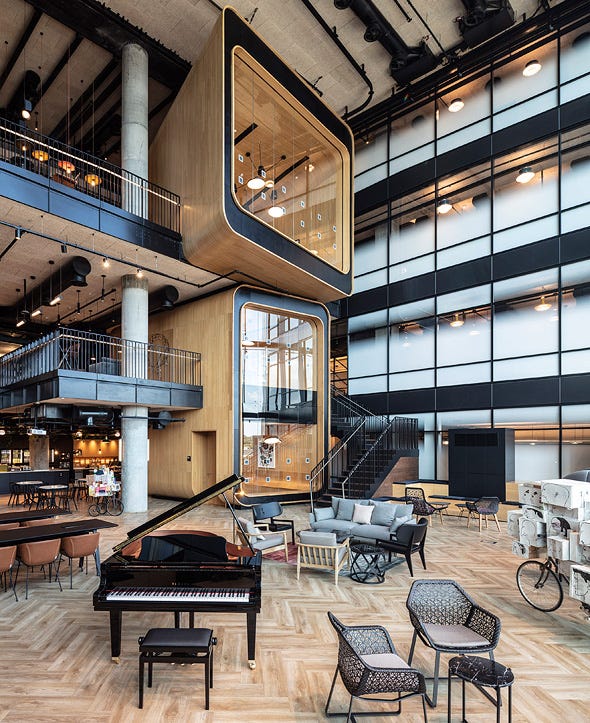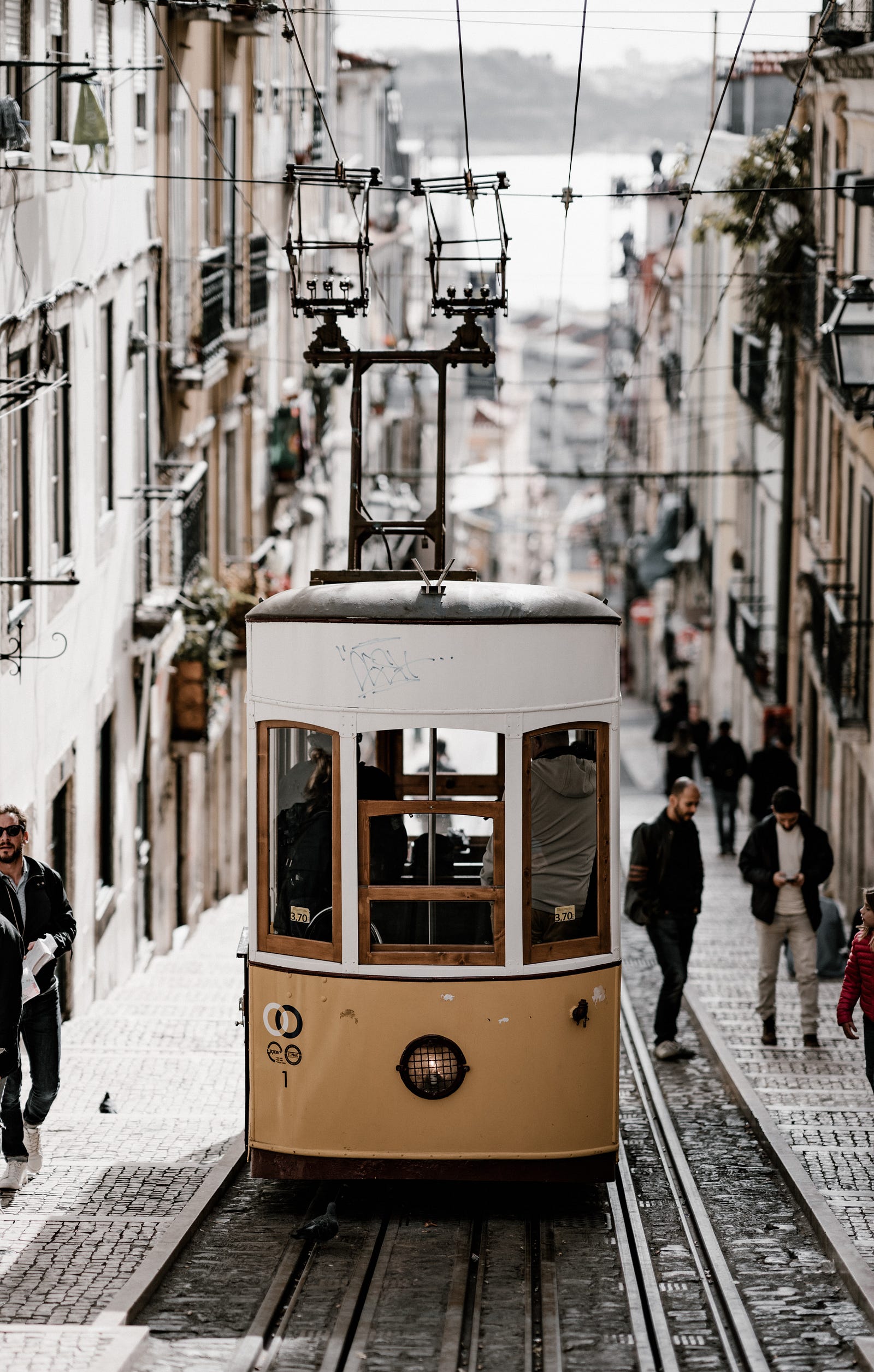Where used to be a house, has become a refuge and in this refuge there is an office now.
Well, when i94.Co ™ was born in 2011, we already practiced the idea of working from home, from the office or from where you felt best.
It could be at home, in some cafe, square, hotel … in another city or another country.
A consultant friend agreed with us — which was very rare in those times — and he said: “It’s the future!”, referring as a solution to the problems of time spent traveling between home / office / school / clients, the lack of transport security (harassment, theft of equipments, ...), the polluting gases caused by optional using private transport (eg. a car used for only one person), etc. Let me add here another factor generated by the lack of security — this was in Porto Alegre do Brasil, with high numbers of armed robberies and kidnappings — it was “living with fear or paying a lot of money in parking”. At the same time, we made expectations about bike lanes — that was in 2013.
I remember a friend who went to live in Barcelona. She was undecided until the day she was mugged at the door of her house. In the first week on Spain, she made a video call with her mother while in a beauty square, using her new notebook (which replaced the stolen one) in a brief pause between sending e-mails. The office at that time was the square.
It is a fact that the office is a very good environment to exchange experiences. Relationship is part of the human evolutionary strategy.
“The only thing I miss about the office is having someone to exchange more ideas with …” I heard from one of our colleagues. That comment came in 2020 — the strange year.
Well, we’ve been together in this office-less model since 2011 and he never mentioned it. I suppose that, the fact of no having another option, may caused this feeling — the truth is, there are no options in this moment. The only option is to stay at home. Some privileged ones can even go to a country house, a beach house, and that’s great! But, unfortunately, many people don’t have the same options, because they don’t have resources or because they did never felt the need to “change the air” before.
I already have spoken with people who went to the countryside or beach. Senior people, high-risk groups looking for air quality, families with children who need to stretch their legs and vent all the energy — and, of course, give a little breath to the parents.
We are now in 2021 and we still have not left 2020.
Everyone who is not in the field of providing basic needs (markets, pharmacies, etc.) or in the front lines of fighting the virus, should or should be at home.
In fact, we can’t say that we didn’t learn something from 2020.
We observed, for example, that working and living doesn't sounds a organic combination. Between verbs “To Live” and “To Work” was created a huge abyss.
We’ve learned that it is necessary to have / to create conditions for a personal and a professional quality of life — or should we just call it “Life Quality”? “Living vs. Working” or “Personal vs. Professional”, does this division still exist?
I believe that, for some areas and for some people, this division should last but for many others it may not. Some traditional environments changed and created alternatives never imagined before, to keep people active and healthy physically, mentally and emotionally. They needed to worry about PEOPLE. Those people who are family, colleagues, collaborators or advisors.

Take a look to Microsoft campus in Israel. A kind of hybrid environment with workspaces, prayer room, music room, gym and children’s play areas reflecting what should be a social space, a community. After all, “A city is a place of intersection”, said Vered Gindi.
It should be a concern for everyone — especially public organizations — to ensure that everyone is doing well.
The future of work and people’s adaptation will depend on the structure of the house, the location, the support network and contact with nature. However, unfortunately, the reality of some regions of the world will not allow many choices.
So, the question is: Where there are favorable conditions for a good quality of life, how are people preparing / adapting? And, where these conditions do not exist, how are people “getting along”?
Lisbon, for example, has an “outdoor” style of life.
Life happens (or happened) in the streets, in cafes, on counters, on terraces, in viewpoints, in front of Tagus, in the trains stations. The house, for many people, was reduced to a bedroom. After spending the day outside, between breakfast and a take-away, between work and the gym, the house was just the place to sleep. The organization in parishes, the valorization of the local market on the edge of the sidewalks is an asset. Cars become an option when there is a variety of good quality public transport to move smoothly through the streets. I mean, the support network is better organized.

However, in some cities in Brazil, this scenario do not exists. We observe, for example, the concept of “apartment complex” in Brazil — they are designed to be clubs or small towns for an exclusive group of people, that I will not call them “privileged” because, for me, the real privilege is being able to walk the streets, cycling or skating between neighborhoods. In some cases, such as Porto Alegre city, having a market or shop outside the downtown is almost a resistance act, against the shopping center industry. In other words, the support network is restricted. A green space, for example, that could be used for public well-being, are overlooked.
Demanding productivity, demanding results, demanding …. before so many demands, we will need to ensure that everyone has — above all — physical and mental health.
So, work is consequence of an active mind and we will need more and more creative and healthy people to quickly rewrite our future.